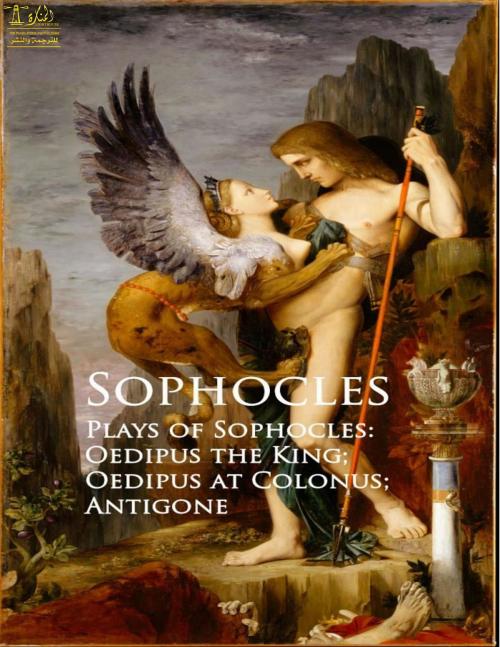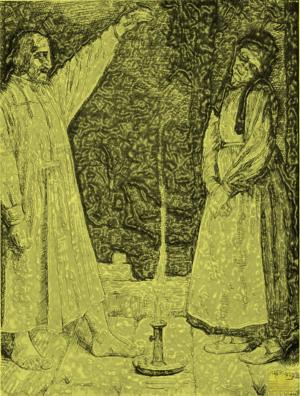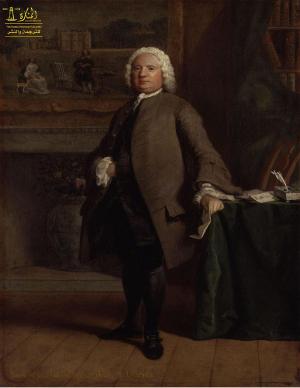Complete Works of Sophocles
Text, Summary, Motifs and Notes (Annotated)
Nonfiction, Religion & Spirituality, Philosophy, Ancient| Author: | Sophocles, Anthony Martinez | ISBN: | 9783593301457 |
| Publisher: | Lighthouse Books for Translation Publishing | Publication: | February 26, 2019 |
| Imprint: | Lighthouse Books for Translation and Publishing | Language: | English |
| Author: | Sophocles, Anthony Martinez |
| ISBN: | 9783593301457 |
| Publisher: | Lighthouse Books for Translation Publishing |
| Publication: | February 26, 2019 |
| Imprint: | Lighthouse Books for Translation and Publishing |
| Language: | English |
Sophocles, (born c. 496 bce, Colonus, near Athens [Greece]—died 406, Athens), with Aeschylus and Euripides, one of classical Athens’ three great tragic playwrights. The best known of his 123 dramas is Oedipus the King.
Life and career
Sophocles was the younger contemporary of Aeschylus and the older contemporary of Euripides. He was born at Colonus, a village outside the walls of Athens, where his father, Sophillus, was a wealthy manufacturer of armour. Sophocles himself received a good education. Because of his beauty of physique, his athletic prowess, and his skill in music, he was chosen in 480, when he was 16, to lead the paean (choral chant to a god) celebrating the decisive Greek sea victory over the Persians at the Battle of Salamis. The relatively meagre information about Sophocles’ civic life suggests that he was a popular favourite who participated actively in his community and exercised outstanding artistic talents. In 442 he served as one of the treasurers responsible for receiving and managing tribute money from Athens’ subject-allies in the Delian League. In 440 he was elected one of the 10 stratēgoi (high executive officials who commanded the armed forces) as a junior colleague of Pericles. Sophocles later served as stratēgos perhaps twice again. In 413, then aged about 83, Sophocles was a proboulos, one of 10 advisory commissioners who were granted special powers and were entrusted with organizing Athens’ financial and domestic recovery after its terrible defeat at Syracuse in Sicily. Sophocles’ last recorded act was to lead a chorus in public mourning for his deceased rival, Euripides, before the festival of 406. He died that same year.
Sophocles, (born c. 496 bce, Colonus, near Athens [Greece]—died 406, Athens), with Aeschylus and Euripides, one of classical Athens’ three great tragic playwrights. The best known of his 123 dramas is Oedipus the King.
Life and career
Sophocles was the younger contemporary of Aeschylus and the older contemporary of Euripides. He was born at Colonus, a village outside the walls of Athens, where his father, Sophillus, was a wealthy manufacturer of armour. Sophocles himself received a good education. Because of his beauty of physique, his athletic prowess, and his skill in music, he was chosen in 480, when he was 16, to lead the paean (choral chant to a god) celebrating the decisive Greek sea victory over the Persians at the Battle of Salamis. The relatively meagre information about Sophocles’ civic life suggests that he was a popular favourite who participated actively in his community and exercised outstanding artistic talents. In 442 he served as one of the treasurers responsible for receiving and managing tribute money from Athens’ subject-allies in the Delian League. In 440 he was elected one of the 10 stratēgoi (high executive officials who commanded the armed forces) as a junior colleague of Pericles. Sophocles later served as stratēgos perhaps twice again. In 413, then aged about 83, Sophocles was a proboulos, one of 10 advisory commissioners who were granted special powers and were entrusted with organizing Athens’ financial and domestic recovery after its terrible defeat at Syracuse in Sicily. Sophocles’ last recorded act was to lead a chorus in public mourning for his deceased rival, Euripides, before the festival of 406. He died that same year.















